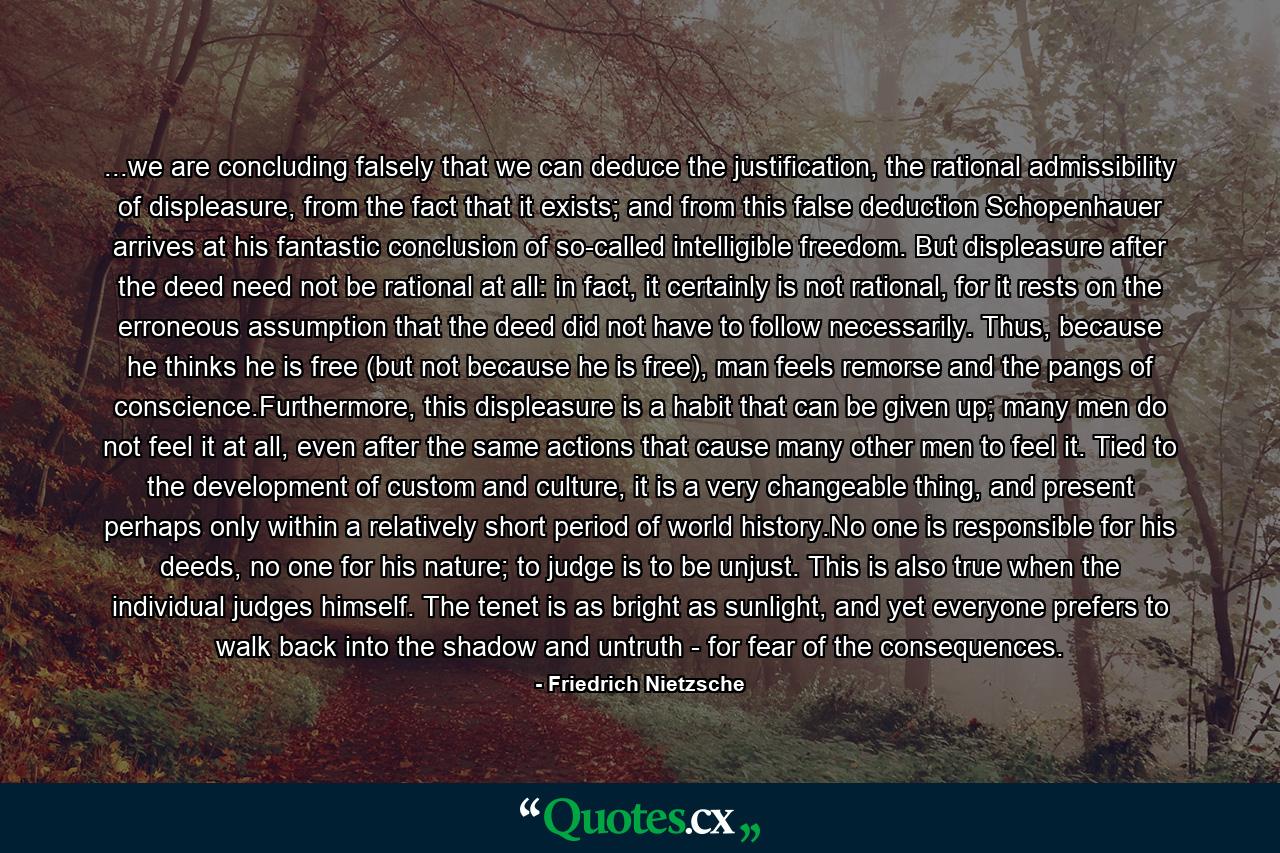…we are concluding falsely that we can deduce the justification, the rational admissibility of displeasure, from the fact that it exists; and from this false deduction Schopenhauer arrives at his fantastic conclusion of so-called intelligible freedom. But displeasure after the deed need not be rational at all: in fact, it certainly is not rational, for it rests on the erroneous assumption that the deed did not have to follow necessarily. Thus, because he thinks he is free (but not because he is free), man feels remorse and the pangs of conscience.Furthermore, this displeasure is a habit that can be given up; many men do not feel it at all, even after the same actions that cause many other men to feel it. Tied to the development of custom and culture, it is a very changeable thing, and present perhaps only within a relatively short period of world history.No one is responsible for his deeds, no one for his nature; to judge is to be unjust. This is also true when the individual judges himself. The tenet is as bright as sunlight, and yet everyone prefers to walk back into the shadow and untruth – for fear of the consequences.
